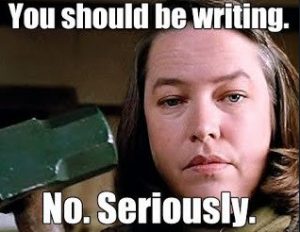
On Saturday July 21st, 2018, Forbes triggered a flood of outrage from the literary, academic, and library-using communities by publishing an opinion piece advocating for the replacement of libraries with for-profit retail outlets. Specifically, Amazon retail outlets. While Forbes has since pulled the article, it can still be found here.
The owner of this controversial opinion is Chair of the Department of Economics at LIU Post and guy whose name sounds like someone’s about to unleash an army of evil dead, Panos Mourdoukoutas.
In a piece that sounds like it was written by a fourth grader badly in need of an editor, Mourdoukoutas argues that libraries have become obsolete. Their services are provided by other (coincidentally not free of charge) entities like Amazon and Starbucks. No, really. I’m not joking. Stop laughing.

